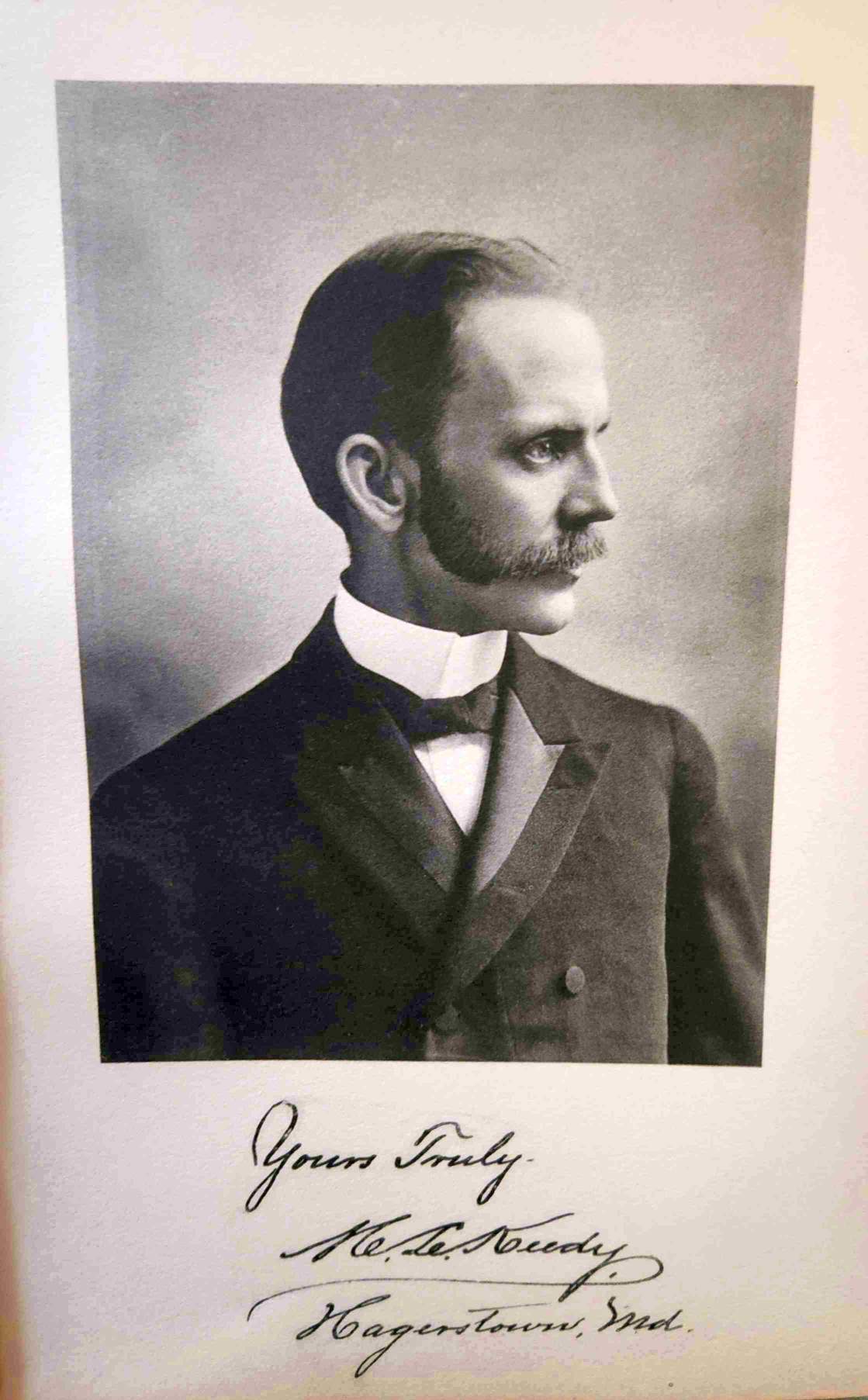
Martin Luther KEEDY - There is no more valuable asset to the political leader than the ability to sacrifice personal interests when the welfare of his party is concerned.This truth is emphasized in the public career of Judge Martin L. KEEDY. In his own county he served his party in a number of positions with credit to the Republican organization and with honor to himself. In time he acquired a strong hold upon the voters of his own political faith in his neighborhood. He had, both in office and as a laborer in the ranks, accomplished much for the transient successes and the permanent strengthening of his party. By his services, he had won the right to be accorded certain recognition in the way of nomination for higher office than that which he held; and, by his ability, he augmented his claim upon the Republicans. At a time, however, when it seemed that Judge Keedy had within his grasp the means of attaining a nomination for a high office, another candidate appeared and secured the nomination and election. His party did not forget his earlier services. It subsequently nominated him for a more important office, and elected him. The strength of Judge Keedy as a Republican leader is and always has been in his strictly moral view of politics.
Martin Luther KEEDY was born at Eakle's Mills, Washington county, on January 5, 1858, the son of Joseph E. and Sophia C. (CLOPPER) KEEDY. His father was a farmer, and the boy, passing his early years on the home farm, acquired habits of industry which accustomed him to hard work and endurance. He received his elementary education in the public schools of Washington county and, when he had been prepared for matriculation at college, left home and went to Salem, Virginia, to pursue his studies at Roanoke College. This was in 1874, and four years later he was graduated from Roanoke College with the degree of Bachelor of Arts. In 1883, Judge Keedy received, from the same institution, the Master's degree.
After completing his college work, he became for a time a teacher. He was connected with the public schools of Washington county, MD, for four years, during which time he devoted all his spare hours to reading law in the office of his uncle, the late H. H. KEEDY. In the fall of 1882, he entered the Law Department of the University of Michigan at Ann Arbor where he continued until January 17, 1883, when he was examined in open cout at the university town and was admitted to the Michigan bar. He did not pursue his law studies for a degree at the University of Michigan, but returned to Maryland and was admitted to the Washington county bar on March 17, 1883.
Shortly afterward, in the autumn of 1883, Judge Keedy made his political debut as the Republican nominee for the office of State's Attorney of Washington county. He was elected and served a full term of four years; but was defeated in November 1887 when he was candidate for re-election. Two years later he was elected a member of the House of Delegates, and during the next session of the Legislature was his party's leader in the lowe house of the general assembly. In 1891, JUdge Keedy was the Republican candidate of State senator, but was defeated.
He was nominated for mayor of Hagerstown in March 1894 and was elected. At the expiration of his term of two years, he was re-elected for another term. In 1894, he was prominently mentioned as his party's candidate for congress, and he had at this coommand a very large and influential following. At this time however, George L. WELLINGTON put in his appearance and frustrated the plans of Judge Keedy's supporters. Mr. Keedy took the disappointment with good grace and labored for the success of this opponent in his own party. Although for a time thereafter he was not favored with any office from his organization, in 1903, he was nominated for the more important office of associate judge of the fourth judicial circuit of Maryland, a post which carried with it a term of fifteen years. Mr. Keedy was elected to this office, which he continues to hold.
Judge Keedy was married on Janueary 7, 1885, to Nellie C. STITT, daughter of the Rev. J. B. STITT, by whom he has had two children.
He is a member of ST. Paul's Methodist Episcopal Church of Hagerstown. He is connnected with the Ancient Order of United Workmen. Before he went on the bench, he was one of the most prominent lawyers of Western Maryland. As a public speaker, or as an advocate at the bar, he is forcible, logical and entertaining. He possesses a well cultivated and balanced mind and, though most of his life a politician - in as far as a laborer for any party is such - he has always been opposed to what is known as bossism in politics, and has been in favor of the people nominating the candidates for whom they vote.
pages 230-233
- Bernard C. Steiner, PhD, Johns Hopkins University
Published by Johnson-Wynne Company, Washington, DC - 1907
presented by MidMdRoots at Frederick MDGenWeb